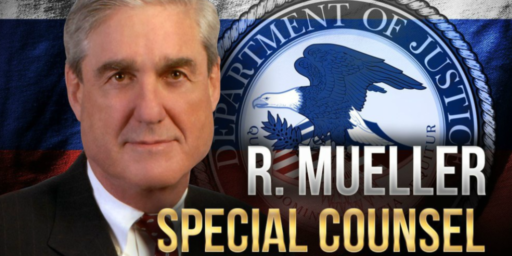Donation Casts Doubt On Journalistic Integrity At Fox
A News Corporation donation to a group opposition a ballot initiative in California is casting doubt on the objectivity of reporting at Fox Business Channel
The combination of a series of Fox Business Channel reports seemingly in favor of in opposition to a ballot proposition in California, combined with a donation from FBN’s parent company to help defeat that proposition, has raised questions in some circles about integrity at Fox:
The Fox Business Network focused on what it called “The War on Business” all last week, but on Tuesday its coverage was decidedly more focused — with a series of reports about a California ballot initiative that its parent company, the News Corporation, had spent $1.3 million to defeat.
Call it the War on Proposition 24
The News Corporation is one of the many major media companies that have spent more than $1 million each seeking to defeat the proposition, which supporters say would repeal $1.7 billion in corporate tax breaks to help close the state’s budget gap.
Executives at media companies, which employ tens of thousands in the entertainment industry, say defeating the proposition is one of their biggest priorities in the midterm elections, and they question how they would continue to operate in the state if taxes go up.
In five consecutive hours of live reports on Tuesday, a Fox Business correspondent, Adam Shapiro, was stationed at Cambridge of California, a small furniture manufacturing facility in Gardena. Mr. Shapiro repeatedly said the proposition could drive businesses — specifically small businesses, not media titans — out of California, and he said “332,000 jobs” were “on the line.”
Tracy Byrnes, the anchor for one of the reports, expressed the opinion that “the proposition was setting up businesses to be destroyed, quite frankly.”
Yet in its expanded coverage of the issue, Fox did not disclose the News Corporation’s donation to a group working to defeat Proposition 24. Nor did Fox report that the small-business man it featured in the news reports was asked to do the interview by the same group, No on 24 — Stop the Jobs Tax.
A Fox Business executive said he had not known about the parent company’s donation. Industry observers, however, said the News Corporation’s contribution to the group, and the organization’s role in arranging the interview, raised a potential conflict of interest that warranted disclosure.
“There’s a trust between you and your audience, no matter what the medium is,” said Kevin Z. Smith, who holds the ethics chair for the Society of Professional Journalists and is a past president of that organization. “Not disclosing conflicts, to me, severely undermines your credibility.”
Now, to be fair, News Corporation isn’t the only media company that has donated to the opposition to Prop 24, and local stations owned by two of them have done reports on the proposition, but none of them have been as strident in their negative coverage as Fox Business Channel has, and it raises the question of whether a network has an obligation to disclose to its viewers that its corporate owners have taken sides in an issue that they are reporting on, especially when the reporting being done is so obviously slanted toward the side of the issue that the parent company happens to be supporting.
The opponents of Prop 24 may be right in their arguments, but it seems to me that there’s a problem with a news organization reporting on the issue in a manner designed to highlight it’s supposed negative impact without revealing the fact that the company that owns you just donated to the organization opposing it. Otherwise, the only conclusion one can reach is that Fox is passing off issue advertising as “news” and not telling their viewers about it.







Uh, the cynic in me wonders how one can raise questions about something that evaporated years ago.
This article belongs in The Onion.
New Information Casts Doubt On Earth’s Flatness.
In retrospect, the Fairness Doctrine was not such a bad thing.
“Fox is passing off issue advertising as “news” and not telling their viewers about it.”
Geez Doug, is this post intended to be submitted to the Guiness Book under the category – biggest “duh” posting in the history of the blogosphere?
“The combination of a series of Fox Business Channel reports seemingly in ***favor*** of a ballot proposition in California, combined with a donation from FBN’s parent company to help defeat that proposition”
is contradicted by all that follows.
yea that’s been corrected….
Re “is passing off issue advertising as “news” and not telling their viewers about it.”
If you want blatant examples of that happening watch CNN and especially MSNBC. At least at FOX you have both liberals and conservative.
@Wayne,
Give me a break. Fox isn’t any more “balanced” than MSNBC,
@John,
No the Fairness Doctrine wasn’t a bad idea. It was a terrible idea.
I love your pronouncements Doug. Well, not really. I mean, on one level they are amusing. It is charmingly rootless to take a position without providing any intellectual or moral grounding whatsoever. On the other hand, they certainly require the reader to do the work for you.
So I’ll just show you how it’s done, with grounding:
The Fairness Doctrine muzzled no one. It didn’t require TV stations or anyone else to STFU. It only required that (1) they maintain a distinction between news and editorial, and (2) they offer equal time for opposing editorials.
It was very mild, which was why it could be the policy of the United States for forty years with no harm done.
And it was the policy of the US for more than 40 years to support slavery. And it was policy to deny women the right to vote for over 100 years.
Somehow, though, enlightenment entered the picture. It entered again when the FCC (with a little help from the courts) decided that forcing someone to say something, even if they actually opposed what was being said, was a deprivation of liberty.
Oh John, that wasn’t over the top at all. LOL.
ROTLMAO, actually.
As I said, no one was told STFU. No one was, in your words “deprivated of liberty.”
If you wanted to do an editorial, you could do an editorial. Period.
The only thing you couldn’t do was disguise and editorial as news. See Fox.
Sorry, so long since I’ve used that one. It’s “ROTFLMAO” isn’t it?
John,
It’s been fairly well established that the impact of the so-called Fairness Doctrine was to give stations the incentive to avoid covering controversial political topics altogether, or to cover them in such a bland way that they programming pretty much sucked. It was one of the reasons that AM radio was on the way to it’s death until the Fairness Doctrine was repealed.
More broadly, I simply do not accept the idea that the government has the right to regulate the content of speech. See, there’s this thing called the First Amendment and these words about Congress making no law.
Of course, you’ll just respond by saying I’m a nihilist or something I’m sure
Good ol’ Wayne. He whines more before 6am than most people whine all day…
So, can you give an example, between 1949 and 1987, of an important topic that radio and television stations did not cover?
See, the bait and switch on this is that government did not actually regulate “speech” in those 40 years, it just compartmentalized it. You could say anything you wanted, it’s just required “that required the holders of broadcast licenses both to present controversial issues of public importance and to do so in a manner that was, in the Commission’s view, honest, equitable and balanced.”
If you wanted to make an argument that busing was bad, you could do that, if you just provided a balanced counterpoint.
Looking back, I’m not sure that I opposed abandonment of the Fairness Doctrine in ’87. I may have thought that there were enough outlets that a balanced view would prevail. I didn’t really anticipate siloing within a diverse media landscape, however.
I didn’t anticipate that “siloing” would become a word to describe information consumption.
What we’re looking at now are information feeds so diverse that consumers have difficulty knowing how straight each source is.
This might hearken back to newspapers of the 20’s or 30’s, but I’m not sure anyone would represent those as a high point in media service.
If there were a Fairness Doctrine today, Fox would choose lefties that were so outrageous so as to reaffirm the existing biases of its viewership. Anyway, whether or not the rule ever was lawful or helpful, it clearly has no place in this era where there is no shortage of outlets for information. Now if only there were more good outlets, but that’s another story.
I’m thinking Doug Mataconis needs a pair of these … http://twitpic.com/2ec7ke
Doug either you don’t watch cable news are you drink a great deal of Kool-Aid. We gone through the lack of conservatives on MSNBC and FOX having many liberals on it many times before.
Anjin
Look at the title of the post and tell me who is whining?
Oh I forgot in the liberal world, a liberal can complain and say anything. In addition no one is allowed to refute it.
Doug — The Fairness Doctrine wasn’t “censorship” of free speech. It was a restriction put on broadcasting corporations as part of the price they paid for using the public airwaves. Republicans decided in the 80s that large corporations should have complete access to all public resources essentially for free, and allowed a handful of giant companies to use the public airwaves to propagandize for right wing causes — you know, like cutting taxes for the CEOs of major corporations or eliminating enforcement of anti-trust laws or any kind of regulation of business.
I don’t have a problem with eliminating the fairness doctrine — as long as the government makes access to those public airwaves equal as well. Right now if I want to broadcast on the same frequency as Clear Channel, the government will shut me down. So if my tax dollars are doing so much for Clear Channel, then yes, I feel it’s fair to demand they not use them to propagandize against my interests.
Of course, this conversation is moot, since the Fox Business Channel is on cable, and thus would not have been regulated under the Fairness Doctrine… Fortunately their combined audience is smaller than this blog’s, so I’m not too worried about the fact that they are lying scumbags.
Apart from the ethics, isn’t FBC supposedly covering, you know, business? The Beck and Hannity wankfests are one thing, but this seems to also be a spectacular waste of time. As is the Wall Street Journal these days.
To be fair, the government regulates a certain range of frequencies. This applies to frequencies that can be used by many processes including wireless internet also. Some frequencies are wide open to the public which usually results in them being used by multiple users therefore resulting in signals interfering with each other. The Government original intent was to regulate who good broadcast on a specific frequency in a geographic area at signal strength to avoid interference with each other.
However like anything the Government gets their claws into, they went much further. IMO the fairness doctrine was an attempt to get their finger in the pie so they could get their hands on a much greater portion of the pie. Once they establish the government could tell stations what content they had to put on for half their show, they had half the pie. They are the ones who get to determine what supposedly the other half is saying, so they get their finger in that as well.
IMO the MSM are very liberal but at least now there are other voices. Government control may switch parties but it is still generally run by the “establishments”. I don’t want them regardless of which party to have that much control.
There is oversight.
It might have made an interesting transition, as the FCC staff changed over from Bush to Obama administration.
“It might have made an interesting transition, as the FCC staff changed over from Bush to Obama administration.”
And so you come around to agreeing with Doug on the utter stupidity of the Fairness Doctrine, John?
No, because pendulum swings are part of democracy.
Are you going to ask me if we should abandon the EPA for the same reason? Bush managed to dilute it a bit, but also had to fight it as they tried to stick by their mission. Now they swing back.
Wayne — Your conspiracy theory is lovely. But doesn’t the fact that the fairness doctrine was in effect for decades and no one ever got around to implementing step two suggest that maybe it was never really a conspiracy?
Wr
The Fairness Doctrine as a policy may have existed for decades buts it was not implemented. It is a bit like a Mayor having a policy that everyone should have a 48” TV. Until he tries to implement it with laws or having the city but TV for it resident, it means very little.
The reason many wanted to bring back “Fairness Doctrine” was because they don’t like what some in the media are saying. This time around they would have found means to enforce what they wanted out of it.
Just because they didn’t do something in the 50’s,60’s, etc doesn’t mean they won’t do it now. Look at many things they have done in last 15 years that they didn’t before.